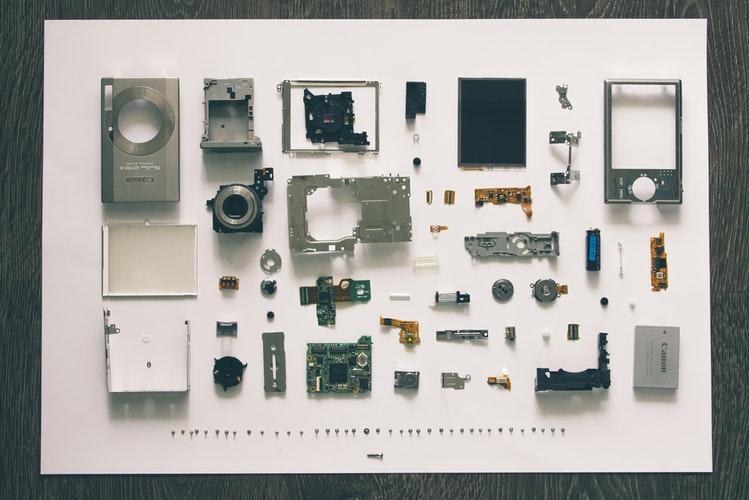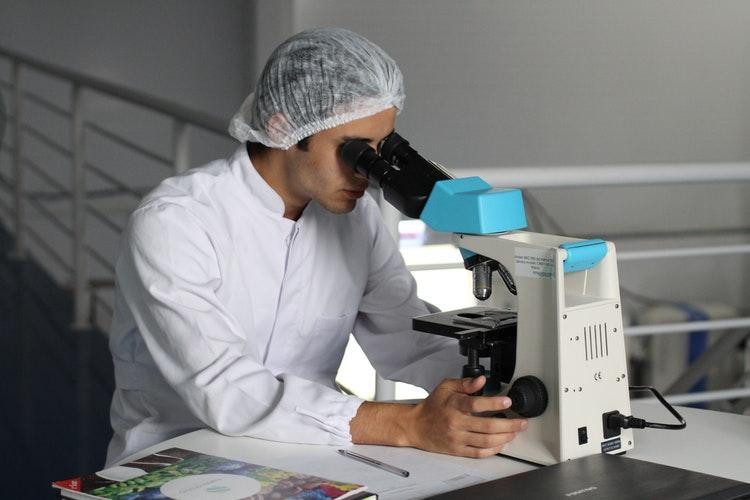Focus industries

The value proposition of talent, track record, technology infrastructure and 12.5% corporate tax rate Ireland offers global corporations continues to resonate strongly with investors. This has empowered Ireland to keep ahead of the curve, cementing its excellent FDI reputation.
Five of the top 10 companies on Forbes’ list of The World’s Most Innovative Companies have Irish operations. This underlines Ireland’s success in attracting cutting-edge FDI investment across a range of sectors. Learn how these sectors have evolved in Ireland and their ambitions for the future.
Business Services

Ireland is one of Europe’s leading locations for Business Services due to the availability of high quality IT, superb infrastructure and human resource skills. Companies in the sector serve major European and global markets as well as operating more sophisticated and diverse regional centres.
Strong track record
Ireland has proved to be a highly sought-after location for the delivery of Global Business Services. In the early 1990s international companies, attracted by our highly skilled workforce and pro-business environment, began to base their centralising functional support activities here.
Attractive location
Business Service companies have come to Ireland for a variety of reasons from corporate tax advantages to the strong infrastructure and the country’s excellent reputation in this sector.
Rapid roll-out
The Customer is King
Business Services companies in Ireland have delivered better customer service, provided more innovative business solutions and reduced costs. Ultimately, this has enabled them to deliver increased shareholder value.
Strength in Numbers
Leading companies such as Accenture, Bertelsmann, Perot, Freightquote, Serco, GLG, Sita, Service Source and Western Union have already located in Ireland adding to the country’s strong reputation worldwide as a centre of excellence for Business Services.
Financial services
International Financial Services
Ireland is the seventh largest provider of wholesale Financial Services in the EU. With more than 500 International financial institutions, Ireland has become a world-leading centre for a variety of activities ranging from fund administration to aircraft leasing.
Global Finance
Firms located in Ireland provide Financial Services to every major economy in the world. International banks, investment managers, insurers, aircraft leasing operators and an array of other financial firms employ over 35,000 people and contribute €2bn each year in taxes.
Educated Talent Pool
More than eight out of 10 of those employed in the sector have at least a bachelor’s degree. Most work in insurance, banking and fund management. However, there is also a large Financial Services sector supporting a multitude of operations in Ireland, ranging from lawyers and accountants to IT providers.
Regional Spread
While Dublin acts as the main hub, the Financial Services sector has many operations spread throughout Ireland from Letterkenny to Cork, Galway to Kilkenny and Limerick to Waterford.
Robust Regulation
The Irish Financial Services Regulatory Authority (IFSRA) is the regulator of all Financial Services firms in Ireland. It is a distinct component of the Central Bank and Financial Services Authority of Ireland.
Strong Skills Base
The Summit Finuas Network is focused on maintaining Ireland’s position as a top international Financial Services centre through ongoing investment in the development of the necessary skills and expertise. The network is led by a steering group, which includes member companies and financial services industry associations.
Engineering

The Engineering sector in Ireland is thriving with over 180 overseas companies generating €4.2 billion in exports annually across areas such as Industrial Products and Services, Aerospace, Automotive and Clean Tech.
Key sectors
The Engineering industry in Ireland is strong and vibrant. It supports a very broad range of companies in various fields and is a strong contributor to Irish exports.
Environmental
The rapidly growing pressure to conserve energy and reduce the impact on the environment is driving an increased demand for engineering expertise to develop new techniques, materials and design.
Medical Devices
Ireland has been highly successful in developing as an internationally renowned centre for medical technology. Highly skilled engineering is a critical facet of this success.
Bio Medical
The application of engineering principles and design concepts to diagnostic and therapeutic medicine is steadily advancing as Ireland’s growth in the Bio Medical sphere continues to rise.
ICT
Ireland has a high concentration of ICT activity and is home to many of the world’s leading technology companies. This presence is supported by essential engineering needs, which help companies produce leading-edge products and services.
Aerospace
Seven of the top 10 Industrial Automation companies have operations in Ireland, including Siemens, ABB, and Emerson. Engineering is an essential element supporting this increasingly important sector.
Energy
The EU’s commitment to drastically reduce greenhouse emissions by 2050 has also seen Ireland develop as a hotbed for energy efficiency development.
Research & Development
The Engineering sector in Ireland has a long history of leading the way in development and design. An impressive 42% of companies and over 1,000 employees are involved in engineering research and development. In order to support this critical function, companies can engage with a number of research and technology centres that aid the development of new global products and processes.
Track record
The Engineering sector employs over 18,500 people directly and many companies have a long established base in Ireland. For example, the large German equipment manufacturer Liebherr set up its facility here in 1958. The synthetic diamond manufacturer Element Six is in Ireland since 1962. Industrial engineering firm Sulzer arrived in 1972. While ThermoKing, the manufacturer of transport temperature control systems, has been operating in Ireland since 1976.
Cleantech
Ireland is currently pursuing a strategy focused on becoming a major investment hub for Clean Technology. Abundant natural resources, high-level skills, a thriving research and development environment, and supportive government policies are all contributing to the growing success in this sector.
Key Activities
The challenges that arise from energy price spikes, resource shortages and environmental issues are key drivers behind Ireland’s quest to achieve success for its clients in the rapidly emerging Environmental and Clean Technology sectors. Ireland also benefits from many natural competitive advantages, placing it above many of its competitors.
Wind Energy
Ireland has one of the best wind energy resources in Europe and has installed wind turbines of 1,000MW in capacity with a further 3,700MW of applications due to connecting to the grid.
Solar Energy
Clusters focused on the development of advanced skills in materials and device development, semiconductor manufacture, IC design and processor technologies are driving development in Ireland. These clusters are jointly backed by major industrial heavyweights and several world-class university-based research centres.
Ocean Energy
With the highest wave energy resource in Europe, Ireland has an estimated generation capacity of 60GW (a fifth of Europe’s total resource).
Talent
Many multinational companies operating in Ireland are diversifying into Clean Tech, taking advantage of the availability of local know-how and expertise to explore new technologies and energy efficiencies. This is supported by strong activity at Ireland’s universities and third-level institutions, all of which engage directly with industry groups.
Research & Development
Ireland has some of the best wind and wave resources in the world making it both an ideal research and test bed location, plus a significant market for renewable technologies.
Academic Clusters
A Strategic Research Cluster focusing on Advanced Biomimetic Materials for Solar Energy Conversion has been established by University College Dublin. The Tyndall Institute at University College Cork and the Centre for Research on Adaptive Nanostructures and Nanodevices (CRANN) also have research projects of key interest to the solar industry. The Irish Maritime and Energy Resource Cluster promotes Ireland as a world-renowned research and development location.
Incentives
Public funding is available to build up research capabilities, skills, institutions and infrastructure in key Clean Tech areas. The Irish government also provides incentives for businesses to adopt new energy efficient, renewable energy and waste management technologies.
Internet

Ireland is fast becoming the Internet capital of Europe. With the top ten global internet-based companies located here, it is a dynamic, exciting area, attracting both established and new players from the world of Search, Social, Games, E-Commerce, Online Payments and Marketing.
Track record
While the growth in the Irish Internet sector has been phenomenal over the past number of years, it is far from an overnight sensation. Microsoft and Intel have been operating in Ireland for 25 years, while Google celebrated its 10th anniversary here in 2013. These have been joined by the likes of Facebook, Twitter and many other emerging players.
Thriving system
While Ireland has a world-renowned multinational sector, indigenous start-ups are blazing trails in areas such as Enterprise, SaaS, Social Media, E-Commerce, Mobile, Education, Financial, Health, Music and Game technology.
Unique Advantages
Due to the strong multinational presence in Ireland there is a wealth of experience, both indigenous and imported, in highly specialised, high-value sectors and international market management.
Every major Venture Capital firm now has a portfolio of companies in Dublin. Thus start-ups and established firms are increasingly attracted to Ireland for the deep pool of talent, which is one of the rarest and hardest resources to find.
Talent & Innovation
A conveyor belt of skilled science and technology graduates fuels Ireland’s thriving Internet sector. In turn, the innovation and creativity developed within the sector has seen Ireland become an internationally recognised hot bed for tech talent. Thus Ireland is now a highly desirable location for skilled multilingual talent from around the globe.
Global Tech Hub
Ireland has become the global technology hub of choice when it comes to attracting the strategic business activities of ICT companies. This has earned Ireland the reputation for being the heart of ICT in Europe. The industry employs over 37,000 people and generates €35 billion in exports annually.
ICT Talent
High quality technical talent is readily available throughout Ireland. The high quality of life available in Ireland, coupled with a thriving ICT sector also attracts talent from around the world. This has been a key factor in the success of multinational companies.
Exceptional Education
The Irish Government recently published the 2014 National ICT Skills Strategy and Plan. Developed in partnership with key industry players, this and other initiatives have led to large increases in the supply of computing, software and electronic engineering graduate talent from third-level institutions.
Tech Start-Up Scene
Ireland has a rich ecosystem of high calibre, innovative indigenous companies, particularly in the software space, which have a growing global representation.
Multilingual Resources
Companies seeking to access European and EMEA markets will find Ireland offers an array of competent multilingual ICT talent.
Track Record
Global ICT companies such as Microsoft, Intel and Google have a long history of success in Ireland and contribute to and draw on a large pool of available ICT talent.
Research & Innovation
Publicly funded Irish research and development centres support the R&D activities of many corporate research projects. This public research complements private sector research, which continues to be financially supported through Ireland's 25% R&D tax credit and generous grant support from the IDA.
CRANN
The Centre for Research on Adaptive Nanostructures and Nanodevices (CRANN) provides a partnership between leading researchers in material science and industry to develop new materials and devices for a range of sectors, particularly the ICT, Medical Devices and Industrial Technology sectors.
INSIGHT
The Insight Centre for Data Analytics combines the skills of leading researchers with knowledge and input from industry leaders to develop next-generation data acquisition and analytics solutions for diverse application areas.
LERO
The Irish Software Engineering Research Centre (LERO) brings together leading software engineering teams in a coordinated centre of research excellence with a strong industry focus, concentrating on Evolving Critical Systems.
Tyndall
The Tyndall National Institute is one of Europe’s leading research centres in ICT research and development, and the largest research facility of its type in Ireland.
Medical Technologies

Ireland is one of Europe’s largest MedTech hotspots and, as a globally recognised centre of excellence, is home to 300+ companies, employing 25,000 people. Thirteen of the world's top fifteen companies have operations here. Ireland also employs the highest number of MedTech personnel per capita in Europe.
Global Leader
Ireland’s MedTech sector has become one of the leading clusters for medical device products globally. Exports of medical devices and diagnostic products now represent 8% of Ireland's total merchandise exports.
- 50% of ventilators used in acute hospitals worldwide
- 33% of the world's contact lenses
- 30 million people with diabetes use Irish made injectable devices
- 2nd largest exporter of MedTech products in Europe
- €12.6 billion in MedTech exports annually
Centre of Excellence
Ireland is home to a closely knit cluster of 300+ MedTech companies, supported by industry, academic, clinical and government agencies. This integrated and progressive community has already encouraged an increasing number of companies to expand operations across multiple facilities.
Talent
With the highest number of personnel per capita employed in MedTech in Europe, Ireland has a deep pool of experienced and highly trained technical and managerial talent. Key areas of specific excellence include mechanical, electronic, materials engineering and science specialists.
Education
Ireland is ranked number one globally for the most highly employable graduates. The MedTech sector benefits from this flow of skilled graduates produced by Ireland’s seven universities and 13 Institutes of Technology. Close cooperation between industry and academic institutions ensures the evolving skill needs of sector are constantly met.
Track Record
As the second largest exporter of MedTech products in Europe, Ireland supplies 95 of the world’s top 100 countries (ranked by GDP). Over 25% of the world’s population that have diabetes rely on injection devices made in Ireland. An impressive 50% of ventilators in acute hospitals worldwide are manufactured in Ireland. While 33% of the global supply of contact lenses are made here.
Regulatory environment
Ireland’s exemplary regulatory environment continues to play a key role in attracting global MedTech companies. Regulation agencies work closely not only with the industry as a whole but also with individual companies to ensure compliance and trouble-free start-ups.
Research & Development
Ireland boasts five clinical research facilities, which support patient-focused research and is ranked number one globally for the exchange of technology and ideas. This supportive environment and generous government grant assistance is responsible for an impressive 60% of MedTech companies in Ireland engaging in research and development activities.
Close Collaboration
The key driving force behind the stunning success of Ireland’s globally recognised MedTech sector has been active collaboration between companies. Over 25% of companies have a shared services mandate, helping the sector develop world-class operations and technology solution development. The industry is also closely integrated with key academic centres of excellence, including AMBER, Tyndall National Institute, BDI, SEAM and APT.
Biopharmaceuticals
Ireland's Life Sciences sector has grown from very humble beginnings in the 1960s to reach global significance. Collaborative clusters in Pharmaceutical, Biotechnology, Medical Devices and Diagnostics have been a key element behind the remarkable growth of a sector that directly employs 25,000 people.
Global importance
The Biopharmaceutical industry has made a capital investment of approximately $8 billion in new facilities in Ireland, most of which has come in the last 10 years. This represents close to the biggest wave of investment in new BioTech facilities anywhere in the world.
Deep pool of talent
Ireland has one of the youngest and most highly educated populations in Europe. This provides a rich and strong pool of talent for the sector, which continues to benefit from high levels of investment in third-level education and the growth of collaborative clusters.
Education
Ireland’s universities in the fields of Engineering, Chemistry, Bio Chemistry and Bio Technology have strong cooperative links with the sector. Feedback from the industry in terms of its skills needs feeds directly into the universities and drives Ireland’s pursuit of Biopharmaceutical academic excellence.
Track Record
Manufacturing excellence in Biopharmaceuticals is a hallmark of Ireland's success in the sector. This is constantly driving growth in the likes of Bio Tech, which has developed from two manufacturing sites in 2003 to 18 in 2015.
Collaborative clusters
A key driver of operational and research excellence is practitioner-to-practitioner knowledge sharing. With strong clusters based in Dublin and Cork, and rapidly developing hotspots around Sligo, Waterford and Mayo, organisations, such as the Irish Centre for Business Excellence and IBEC, work with the IDA to facilitate best practice-sharing between companies.
Regulation & Standards
Ireland has an exemplary compliance record with regulatory agencies, including IMB, FDA and EMA. They work closely with companies to achieve trouble-free compliance. Certification agencies in Ireland operate in accordance with European and global standard procedures.
International Reputation
Ireland’s regulatory track record is excellent and the Irish Medicines Board, recently rebranded as the Health Product Regulatory Authority (HPRA), boasts an international reputation in regulatory compliance.
Drive for Excellence
The HPRA has recently initiated Regulatory Science Ireland to explore opportunities for investment in research to increase understanding around processes and products, and thereby support Ireland’s reputation for regulatory excellence in manufacturing.
Research & Development
Ireland has a significant track record of clinical and academic research excellence. The government has also committed €8 billion to research funding to further bolster Ireland’s reputation as a growing hub for research and development.
Training Centre
The National Institute for Bioprocess Research and Training (NIBRT), created from a €60million investment by the IDA, gave practical training to 2,000 people in 2013. Senior executives from the sector sit on the NIBRT board in the knowledge that the availability of suitably trained staff is a key determinant of success in Biopharmaceutical manufacturing.
Funding
Science Foundation Ireland (SFI) funds a lot of basic research in the Biopharmaceutical sector, especially with regards to understanding cancer, autoimmune disease and Alzheimer’s. Recently SFI announced a deal with Pfizer, whereby both parties are jointly funding basic Bio Medical research, which will help support Pfizer’s drug discovery efforts here in Ireland and globally.
